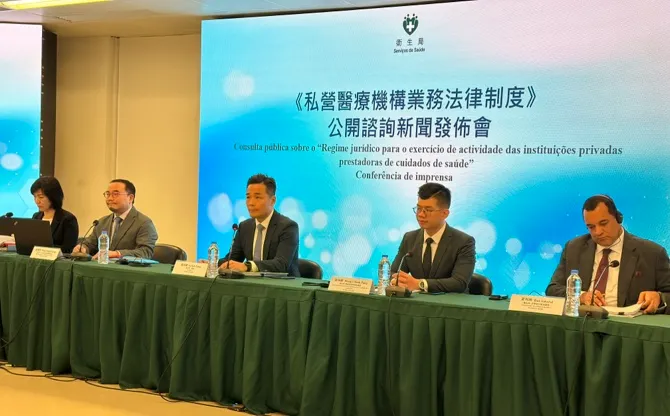
A groundbreaking proposal from Macau’s government stands to redefine how tourists—and locals—access healthcare in the world’s largest integrated resort city. Under a new “big health” legal framework currently under public consultation, resorts and hotels that meet strict technical and spatial criteria may soon be permitted to host day hospitals, offering bundled outpatient services right where travelers stay.
The framework, circulated for feedback until mid-May, received nearly 900 public submissions. From these, only 5.7% were in opposition—indicating solid support for the plan. Central to the government’s strategy is leveraging Macau’s world-class casino-integrated resorts to diversify its tourism and services portfolio, adding “aesthetic medicine, health management, and stem‑cell therapy” to the overdose of gaming and entertainment options.
At a press conference in April, the Health Bureau’s director, Alvis Lo, underscored that day hospitals would not replace traditional hospitals, but instead complement Macau’s healthcare landscape. “It is hoped this will … attract more investment and customers, create more employment opportunities for local medical staff, and drive the development of the local medical industry,” Lo emphasized. SSM Deputy Director Kuok Cheong U also pointed to a growing local talent pipeline, noting that Macau University of Science and Technology has just produced its first batch of home‑grown doctors, with the University of Macau’s inaugural public medical school set to open in 2028.

Day hospitals will be limited to outpatient and minimally invasive procedures—covering specialized surgeries, general or regional anesthesia, and even assisted reproductive services—undertaken during a single visit. They may also contain operating and recovery rooms but cannot perform full inpatient care.
Another key hurdle for resorts is infrastructure. The Health Bureau suggests that a minimum of 500 m² of usable space is needed to qualify. Fortunately, Macau’s expansive integrated resorts already meet or exceed this quota, with several operators reportedly planning to integrate such facilities.
Notably, Wynn Palace’s EliteKinesio Medical Centre in Cotai serves as a functional forerunner. Opened in August 2024, it currently offers physical therapy, visceral manipulation, and cardio-pulmonary rehab programs. It thus demonstrates the operational feasibility and demand potential for day hospital services within a resort setting.

Why This Matters for Macau
-
Diversification of Services
Beyond gambling, gaming concessionaires can now genuinely contribute to Macau's “big health” vision—embracing wellness tourism, precision medicine, and aesthetic procedures. This aligns with global trends where healthcare meets hospitality. -
Economic Resilience
High-value healthcare services can attract tourists during low gaming seasons, balancing the volatility tied to gambling revenues. Public consultation feedback highlights this as a strategic economic advantage . -
Amplified Local Opportunities
With more medical facilities in the private sector, Macau can absorb newly trained doctors and healthcare staff, mitigating a historical shortage and creating new employment niches. -
Convenience & Competitive Advantage
International health tourists often prefer destinations offering medical care within integrated resorts. Macau stands to benefit by bundling treatment and accommodation in a single, seamless package.
A Glimpse Forward: Prospects & Next Steps
Over the next few months, the government will analyze the consultation outcomes and fine-tune the legislation. Provided the framework is approved, resort-based day hospitals could launch as early as late 2025 or 2026—ushering in a new era of medical tourism meets grand resort luxury.
In the long term, Macau’s experiment may signal a broader shift: integrated resorts across Asia could follow suit, becoming hybrid healthcare destinations. This model could notably influence tourism policy in neighboring regions like Hengqin and the Greater Bay Area.
Final Thoughts
Macau is rewriting its hospitality narrative. By embedding regulated, specialist medical services into resorts, the city aims not only to broaden its appeal, but also to lay the groundwork for a sustainable, diversified economy. As Health Bureau director Alvis Lo aptly stated, the day hospital initiative “will further expand the development space of the local private healthcare market”.
This venture bridges comfort and care, luxury and wellness—positioning Macau as a destination not just for leisure, but for healing. Only time will tell whether the gamble pays off, but the stakes—economic stability, employment, and medical innovation—make this a bet worth backing.

 Content Writer: Janice Chew • Thursday, 25/07/2025 - 22:38:18 - PM
Content Writer: Janice Chew • Thursday, 25/07/2025 - 22:38:18 - PM